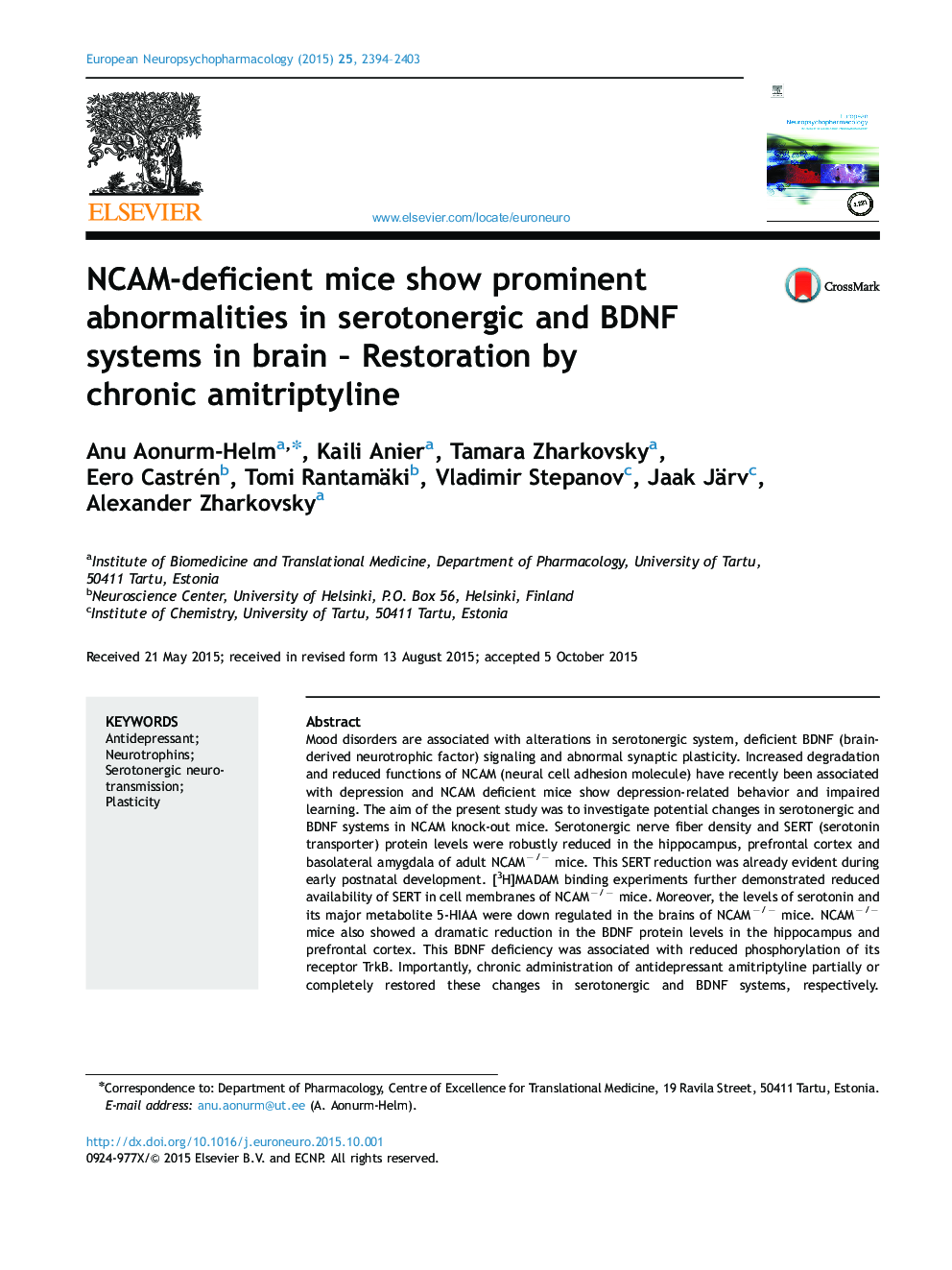| Article ID | Journal | Published Year | Pages | File Type |
|---|---|---|---|---|
| 10299046 | European Neuropsychopharmacology | 2015 | 10 Pages |
Abstract
Mood disorders are associated with alterations in serotonergic system, deficient BDNF (brain-derived neurotrophic factor) signaling and abnormal synaptic plasticity. Increased degradation and reduced functions of NCAM (neural cell adhesion molecule) have recently been associated with depression and NCAM deficient mice show depression-related behavior and impaired learning. The aim of the present study was to investigate potential changes in serotonergic and BDNF systems in NCAM knock-out mice. Serotonergic nerve fiber density and SERT (serotonin transporter) protein levels were robustly reduced in the hippocampus, prefrontal cortex and basolateral amygdala of adult NCAMâ/â mice. This SERT reduction was already evident during early postnatal development. [3H]MADAM binding experiments further demonstrated reduced availability of SERT in cell membranes of NCAMâ/â mice. Moreover, the levels of serotonin and its major metabolite 5-HIAA were down regulated in the brains of NCAMâ/â mice. NCAMâ/â mice also showed a dramatic reduction in the BDNF protein levels in the hippocampus and prefrontal cortex. This BDNF deficiency was associated with reduced phosphorylation of its receptor TrkB. Importantly, chronic administration of antidepressant amitriptyline partially or completely restored these changes in serotonergic and BDNF systems, respectively. In conclusion, NCAM deficiency lead to prominent and persistent abnormalities in brain serotonergic and BDNF systems, which likely contributes to the behavioral and neurobiological phenotype of NCAMâ/â mice.
Related Topics
Life Sciences
Neuroscience
Biological Psychiatry
Authors
Anu Aonurm-Helm, Kaili Anier, Tamara Zharkovsky, Eero Castrén, Tomi Rantamäki, Vladimir Stepanov, Jaak Järv, Alexander Zharkovsky,
